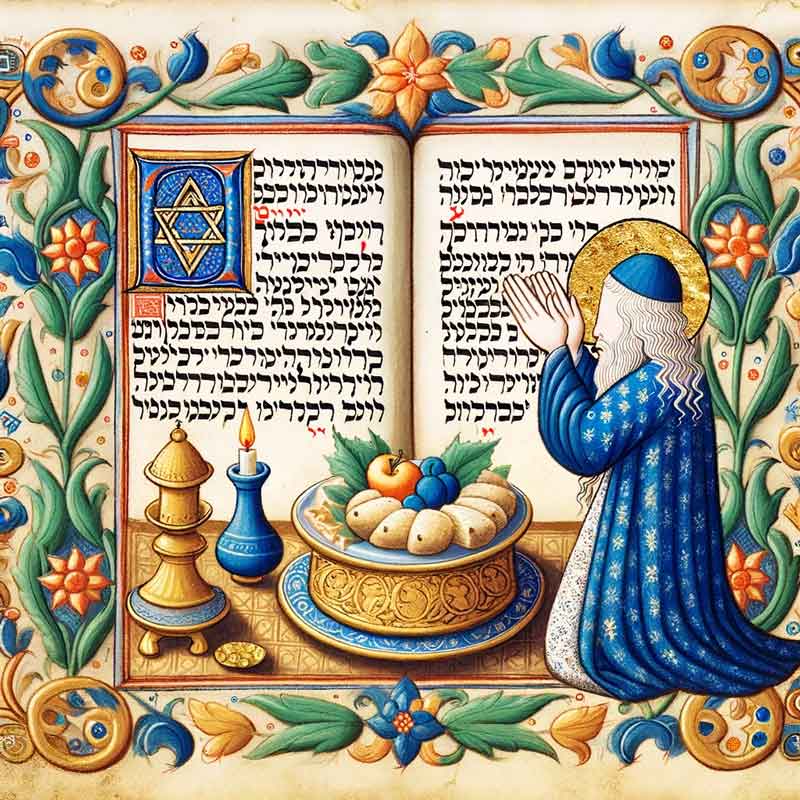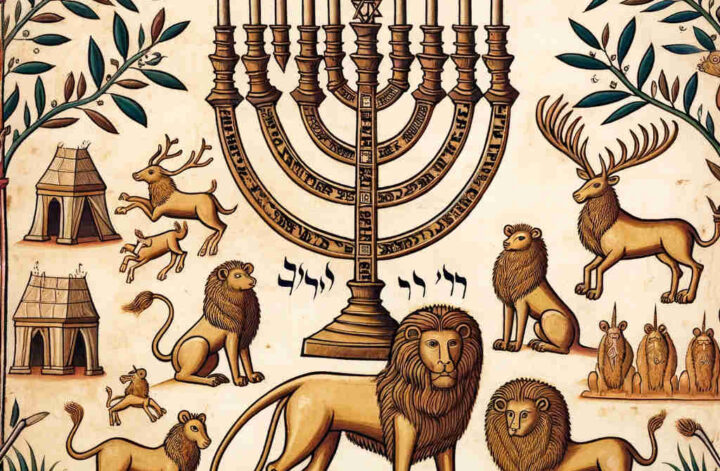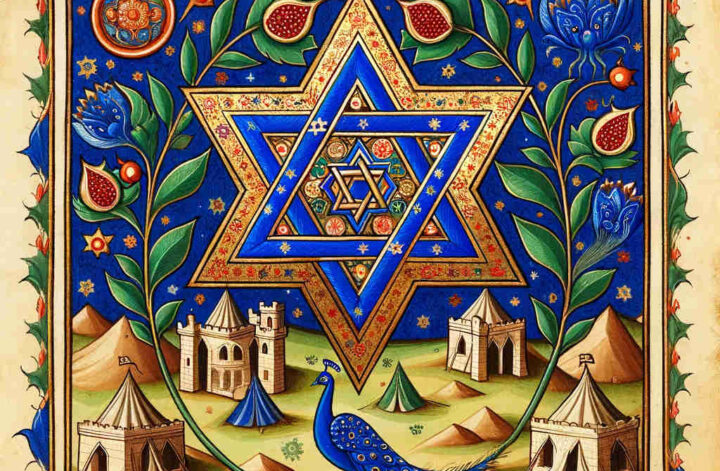“Dear Rabbi Joshua,
Sincerely,
Emily Gonzalez”
The Significance of Blessings Over Food in Judaism
Dear Emily, your inquiry touches upon a fundamental aspect of Jewish life and spirituality. In Judaism, the act of blessing food is not merely a ritualistic expression; it is a profound acknowledgment of our relationship with the Divine and the natural world. Each blessing, known in Hebrew as a ‘bracha’ (בְּרָכָה), is a moment of reflection and gratitude, recognizing God as the source of all sustenance.
Basic Principles of Brachot
The Talmud (Berakhot 35b) teaches us, “A person must not enjoy anything of this world without a bracha.” This principle underlies the Jewish practice of reciting blessings before consuming food or drink. The purpose is twofold: to express gratitude to God and to elevate the act of eating from a mundane activity to a spiritual experience.
Categories of Brachot
There are several categories of brachot for different types of food:
- Borei Pri HaGafen (בורא פרי הגפן) – This blessing is recited over wine or grape juice, acknowledging the fruit of the vine.
- Borei Pri HaEtz (בורא פרי העץ) – This is for fruits grown on trees, like apples or oranges.
- Borei Pri HaAdama (בורא פרי האדמה) – For vegetables and other foods that grow from the ground.
- Borei Pri HaAdamah (בורא מיני מזונות) – For grain products like bread, pasta, and pastries.
- Shehakol Niyeh Bidvaro (שהכל נהיה בדברו) – This universal blessing is for foods that do not fall into the above categories, like fish, meat, eggs, and dairy.
Brachot After Eating
Beyond the blessings before eating, there are also brachot recited after eating, known as Birkat Hamazon (ברכת המזון) or the Grace After Meals. This set of blessings is recited after consuming bread made from one of the five grains. It is a more elaborate thanksgiving, comprising four blessings that encompass gratitude for sustenance, the land, Jerusalem, and God’s goodness.
For foods other than bread, shorter blessings known as ‘Brachot Acharonot’ (ברכות אחרונות) are recited. These include ‘Me’en Shalosh’ (מעין שלוש) for products of the vine, grains, and fruits from the Land of Israel, and ‘Borei Nefashot’ (בורא נפשות) for all other foods.
Deepening Connections Through Blessings
In essence, each bracha is a moment of mindfulness, drawing our attention to the divine source of all nourishment. It’s an opportunity to pause and contemplate our place in the world and our relationship with our Creator. Through these blessings, we not only express gratitude but also sanctify our daily actions, infusing our lives with a deeper spiritual significance.
Shalom,
Rabbi Joshua



